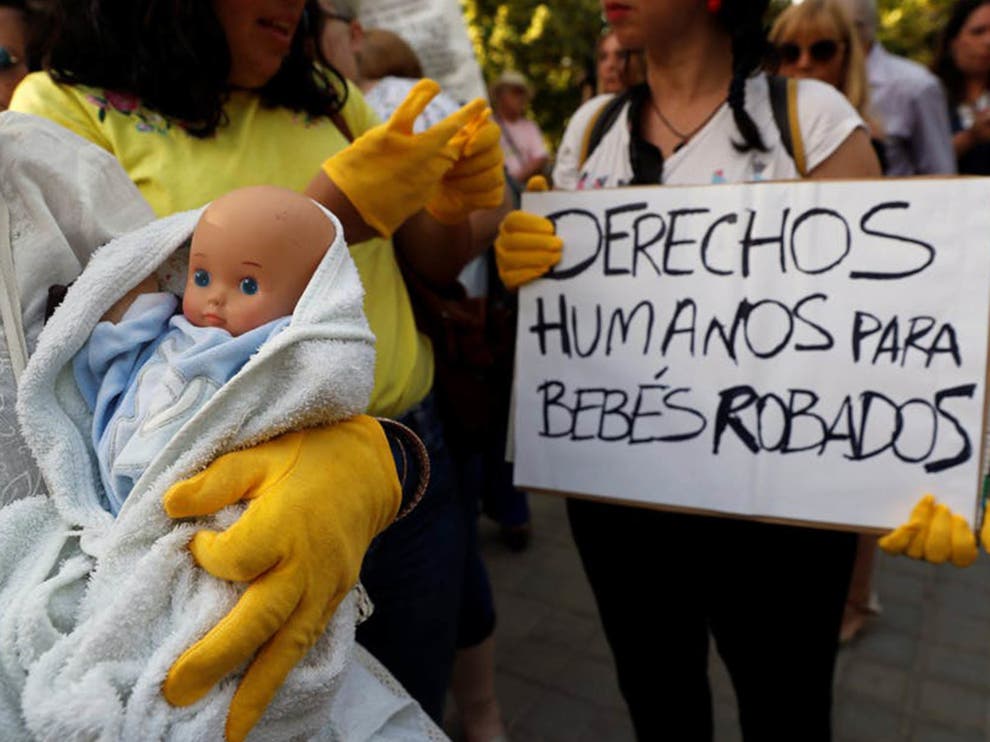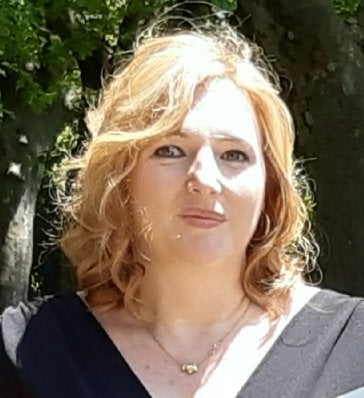‘More than 50,000 babies’ stolen from Spanish mothers under Franco era laws
‘The pain is permanent and continuous,’ says one of the mothers affected, Ruth Puertas

Your support helps us to tell the story
From reproductive rights to climate change to Big Tech, The Independent is on the ground when the story is developing. Whether it's investigating the financials of Elon Musk's pro-Trump PAC or producing our latest documentary, 'The A Word', which shines a light on the American women fighting for reproductive rights, we know how important it is to parse out the facts from the messaging.
At such a critical moment in US history, we need reporters on the ground. Your donation allows us to keep sending journalists to speak to both sides of the story.
The Independent is trusted by Americans across the entire political spectrum. And unlike many other quality news outlets, we choose not to lock Americans out of our reporting and analysis with paywalls. We believe quality journalism should be available to everyone, paid for by those who can afford it.
Your support makes all the difference.Spain is failing to help families trying to trace babies stolen from their mothers, says Amnesty International, which uncovered at least 50,000 cases of infants removed without their consent.
The human rights group says relatives trying to find their missing loved ones are being offered “insufficient and inadequate” resources despite a scandal which has haunted Spain for decades.
In a report published on Tuesday, Amnesty documents show that after the Spanish civil war between 1936-1939, some minors who were repatriated from exile abroad were given to families judged to be more suitable by the dictatorship of General Francisco Franco.
Others were taken away from their mothers by the authorities because they were in prison, not married or were thought to be left-wing.
According to Amnesty, even after the death of Franco in 1975, the state took little interest or care to stop a culture of stealing babies by doctors, priests or nuns, a practice which carried on long after the dictatorship.
Read more:
Over a 50-year period from the civil war to the early 1990s, thousands of children were systematically taken from their real families, says the report, but no legal action has been taken against those responsible for these violations of human rights, Amnesty says.
Spain’s left-wing government must launch an international search for these missing children who may now be scattered across the globe, the civil rights group says.
Prosecutors should re-open scores of criminal cases which have been shelved because the statute of limitations has expired or due to lack of evidence, the report says.
Amnesty says Spain must ensure the draft Stolen Babies Law, which is currently going through parliament, finds justice for relatives of those who were stolen as infants.
Ruth Puertas gave birth to her son in 1993 at a private clinic in Bilbao in northwestern Spain but was told by medical staff he was dead.
Refusing to believe doctors and nurses, she secured a judge’s order to exhume the body – only to find no remains of a baby in the coffin.
“I saw my son after I gave birth to him so I know he was alive. The pain is permanent and continuous. You say that when there is a death in the family you never forget and you get over it. But I have not got over it,” she toldThe Independent.
Investigators found 51,266 cases of children who wereremoved from their real families between 1937 and 1954 under laws passed during the dictatorship.
In the years afterwards, thousands more children were believed to be taken by doctors, nurses or even priests.
State prosecutors investigated 2,138 claims of stolen children between 2011 and 2021, according to the report but only one remains open. Of these, 526 were prosecuted but all the cases were dropped.
“We have documented cases in which there are indications that the three elements established by international law exist to consider that we can speak of enforced disappearance: first, the abduction of the baby, second with the tolerance or acquiescence of the State and third the refusal of the authorities to reveal the fate of the disappeared person,” said Daniel Canales, an Amnesty International investigator.

The stolen babies scandal remained in the shadows until two men went public with their story in 2011.
Antonio Barroso and Juan Luis Moreno revealed they had been bought by their respective fathers from a priest in Zaragoza, easternSpain.
In 2018, Spain’s left-wing government approved a parliamentary commission to help families who believe their loved ones were stolen.
A DNA bank was set up to make it easier for relativesto trace family members.
In January, the state prosecutor began an investigation into 56 cases of stolen babies.
Join our commenting forum
Join thought-provoking conversations, follow other Independent readers and see their replies
Comments